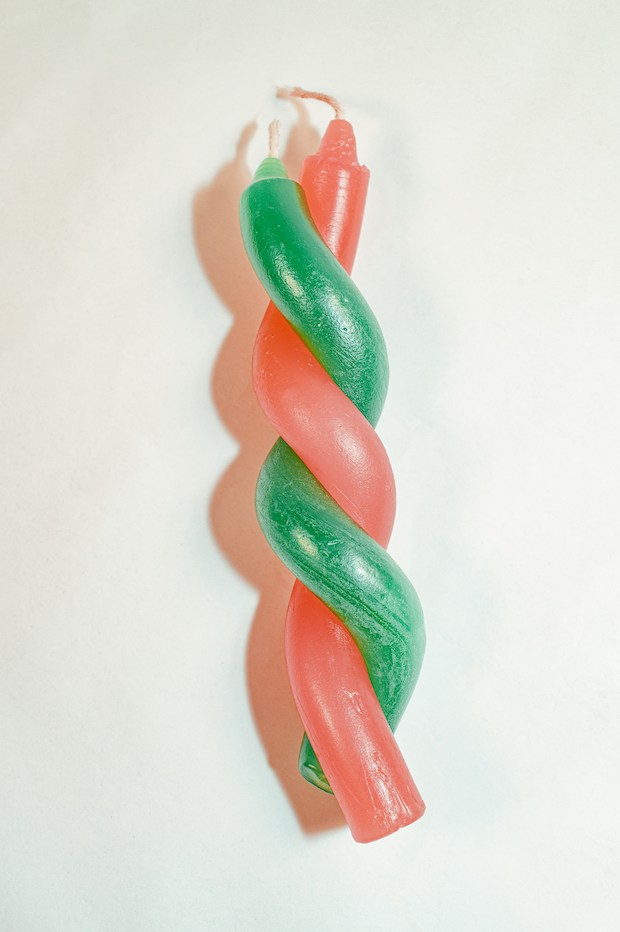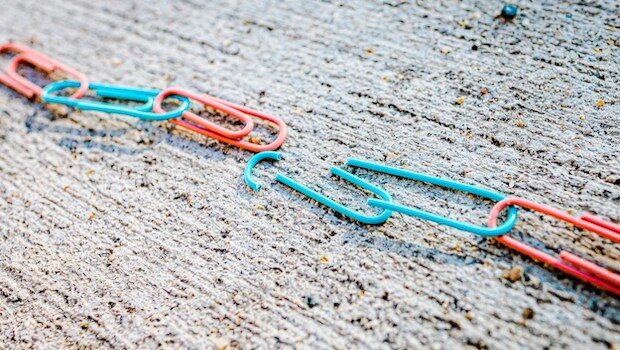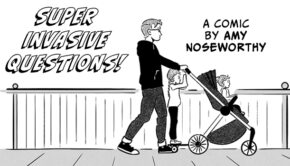And Then There Were Two
I was sure that by age eight, Cora would understand where her body ended and her mothers’ began. Instead, she still climbs up on my lap, winding limbs into nooks and crannies of my body for which there are no existing words of protest. Even placing a basket filled with folded squares of brightly patterned sari seconds next to our kitchen table couldn’t inspire her to use a napkin instead of absentmindedly wiping her hands on one or another mother.
I am home alone with Cora the evening the nerve pain makes me turn to prayer. I try my best to ride the edges of the pain with song rather than screams. She brings me the phone and stands helpless at the foot of my bed while I call Miriam, my wife and Cora’s other mom. Call a friend to come stay with her. Call my lover, who is a medical provider, to advise how big a dose of hydrocodone a liver can handle after all the acetaminophen. Adults arrive. I ask them to pack the pills. Pack the narcan. Pack the pillows. Put Cora upstairs with cartoons and headphones so she doesn’t hear the horrific crawl down our front stairs to the car. She still hears.
It is the night before Halloween and the Alta Bates ER feels like it is running a haunted hospital theme. I balance my length along the double seat in the waiting room, hovering precariously above the insides of others—bloody footprints tracked across the waiting room floor, a puddle of vomit the security guard at the triage desk took a break from his reality show to throw a blanket over. A chorus of animal wails rings through the room. One of them is escaping from my own body, its own house of horrors. I cling to the torn padding of the arm rest, pleading to no one, making promises I can’t possibly keep. Miriam knocks again at the door of the nurses’ station, informing them, calmly and firmly, that the morphine and toradol injections have done nothing and that they need to get an IV started.

When Miriam’s active labor began, I went to the kitchen sink—the only sink in our apartment—to splash cold water onto my face. I had never seen someone I loved in such sustained pain, and had been racked with guilt. Hadn’t I done this to her? I had been the one to plunge a syringe of semen into her. Why had I agreed to let her go first—to be the one to carry? I had soothed myself then by remembering there would be a baby on the other side of her pain, that I could take the next turn.
But now Miriam stands by looking at me with concern. There will be no baby on the other side of this. After five years of trying, my body has found its own share of profound pain, but not the means to host a pregnancy.
The ensuing weeks of bouncing in and out of ERs awaiting surgery mark an abrupt end to my body’s time as prop, playground, and comfort object for Cora. She begins to say thank you when I am able to fulfill her requests, as though my physical labor is something other than a natural resource. She never again climbs into my bed in the middle of the night. And a few weeks later, when I invite her in one morning, she hovers at the foot of my bed and bursts into tears, protesting, “But what if I hurt you?”
Before winter’s end, Cora and I will each take turns as teacher and pupil in an advanced study course on playful convalescence—contenders in a cozy competition in which there are only winners. Cora is a mastermind of games that can only be played—indeed, can only be imagined—after lying down for most of the day. We spend evenings drawing together. I act as a forensic sketch artist for the dreams and anxieties she recites to me. Together, we explore an archive of herbal teas and juvenile fiction audiobooks. After surgery, Cora becomes curious about my physical therapy, joining me on the floor to stretch and move. I watch as she begins to build a map of her own body—where does one feel this stretch if they drop their shoulders, rotate a pelvis, flex a foot? Over time, this gives way to new practices and languages of physical intimacy—Can I press on your body here and does it change where you feel the stretch? Do your shoulders like the kneading or the patting motion? Cora likes the patting. While wearing her fleece robe. “Because it feels like you are covered in fur. You should try it, Ama.”






